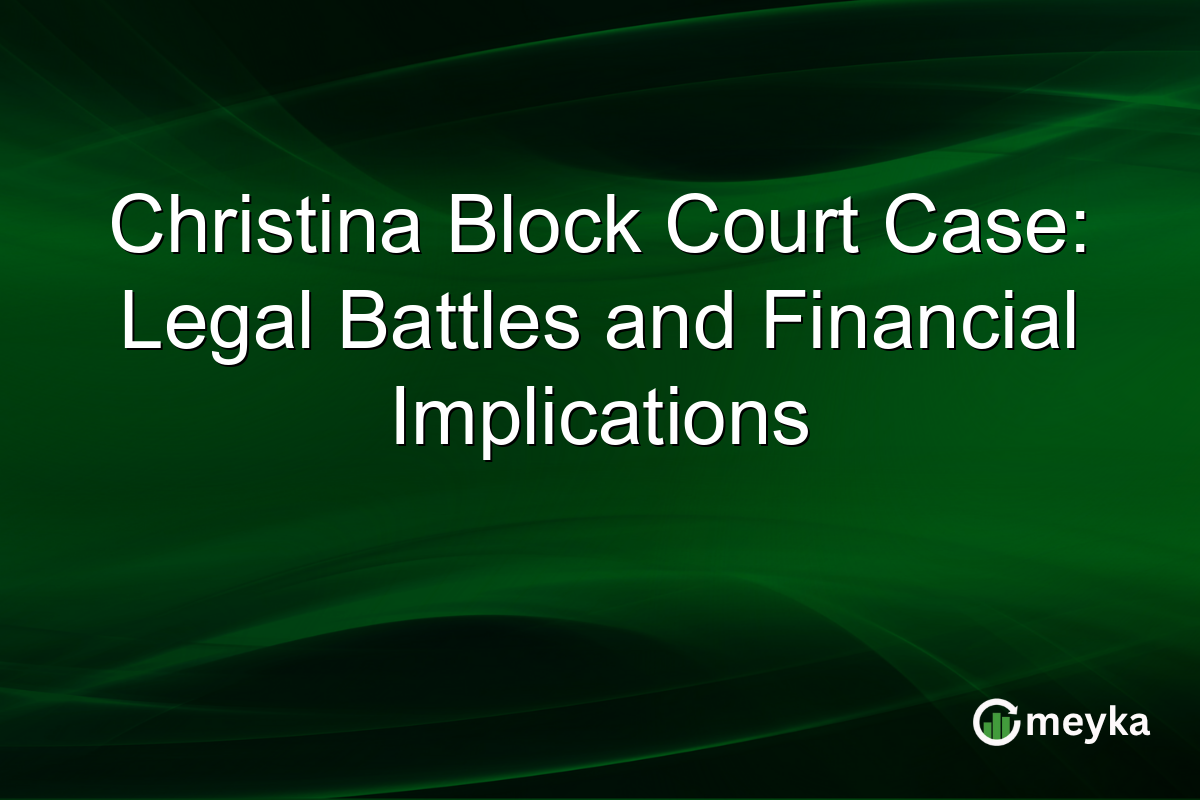Christina Block Court Case: Legal Battles and Financial Implications
The Christina Block court case has captured widespread attention as it navigates the complexities of Danish family law. This ongoing legal battle revolves around a child custody dispute, bringing to the forefront contentious issues of financial obligations intertwined with parental rights. As Christina Block fights for her parental privileges, the case underscores significant implications for those embroiled in similar legal challenges.
Continue Reading on Meyka
This article is available in full on our main platform. Get access to complete analysis, stock insights, and more.
Read Full Article →





